Book Censorship Done Three Ways
Somebody, somewhere, is always trying to stop you from reading
Two things are ostensibly true: Everyone loves books and everyone hates censorship. Which is why it’s weird that so many metrics seem to indicate that everybody hates books and loves censorship. Log into any space where discussion is going on and you’ll find people of every political stripe accusing each other’s side of being filthy censors while they, themselves, are virtuous first amendment protectors.
All censorship is, at its heart, social engineering. Censors want to shape society’s thoughts, attitudes, and actions by controlling the flow of information. This can be attempted in a number of different ways.
This week my article is about three seemingly completely separate current events, all of which I planned to write about at some point, but after thinking about it enough I decided they weren’t so disconnected. So this one’s about book censorship, and like a YouTube cook I’m gonna show you how to do it three ways.
Book Banning
The censorship most commonly associated with the political right is also its most explicit form. That is, the outright banning, or burning, of books. The thought summons images of Nazi bonfires and Fahrenheit 451 (though Ray Bradbury at various times denied that his novel was about censorship, but rather the dumbing down of society by television). Bombastic displays of book destruction are less common these days and bans are more often accomplished through bureaucratic regulation—notoriously, at the moment, Ron DeSantis’ Stop Woke Act which makes it illegal in Florida to, among other things, teach kids that systemic racism exists.
Those on the right who really, really want to ban books but have trouble squaring that with their political wing’s ostensible reputation as “the free expression side” always have one flawless get-out-of-hypocrisy-free-card in their repertoire: The right of free expression doesn’t really exist when children are nearby.
Of course, that’s not in any constitution I know of, but just try swearing like a sailor or making sexually overt remarks in front of another man’ kid and see whether his freedom to punch still stops short of your face.
So the tactic of trying to censor broad swaths of content, literary and otherwise, “in case kids see it” is very broadly applied. This is precisely the excuse being used to ban drag performances in the United States, because conservatives have just learned of their existence somehow despite the fact that both Priscilla, Queen of the Desert and To Wong Foo came out 30 years ago.
But anyone thinking this type of thing is brand new has forgotten just how huge the push was to ban Harry Potter in the first years of the 2000s. People had to actually fight in federal court for their right to read those books. It remains the single most banned or challenged book (cumulatively as a series) of the decade 2000-2009 in the United States, the reason being that, apparently, witchcraft and magic are major themes (I haven’t read them).
But this reveals the true nature of most of these book bans, which is that they’re not really about protecting children at all. They’re about heresy.
This need not be heresy of the religious type. The first book bans in America were explicitly religious in nature, bit just as many titles in America’s long and depressing history of book bans concern secularly heretical notions of minority rights. Heresy against the accepted social doctrine is always frightening and, by definition, this is what conservatism is: Preservation of the social doctrine. When conservatives talk about freedom of expression, they generally mean, whether consciously or otherwise, freedom of expressing yourself within the rails of accepted dogma. Anything outside those rails is at best false and misguided or at worst propaganda designed by dangerous or even downright evil people.
Your local big box store might advertise itself as the place that sells everything but you still can’t buy a vial of anthrax. Likewise, ideas that are considered very dangerous can be excluded from the marketplace of ideas without much argument from the people who agree they are dangerous.
I have a theory that nobody, or nearly nobody, is as much into the “marketplace of ideas” as they say they are. Few people are actively looking to challenge their own core values and beliefs. I think that most people suspect that the primacy of their own ideology is such that the value of a marketplace extends only to provide space for compatible ideas to thrive—and if smaller, weaker, wrong ideas occasionally intrude then they will quickly be picked off and squashed.
In short—nobody really thinks they might be wrong. Not about anything important.
“Marketplace” is of course a term that directly alludes to capitalism and conservatism isn’t as compatible with capitalism as a lot of conservatives like to think it is. Then again, even capitalism is incompatible with capitalism. You can’t honour market forces on new ideas if your primary mission is to honour the status quo. Incompatible ideas, and the books containing them, must be thrown out.
But no prospective book banner wants to look like they can’t handle a little dissenting point of view—lords no, it is the children who are vulnerable.
The philosophy, in so far as it affects children, isn’t even necessarily wrong. I wouldn’t want kids reading Mein Kampf without guidance. It would be a bad idea to drop a thousand pages of some guy shrieking about how evil the Jews are on a kid’s lap without some accompanying context. But there is a huge whopping difference between the risks associated with packing a child’s brain full of weapons grade racial hatred and the risks associated with telling a child that gay people exist. Like, just letting them know that it’s a thing.
The DeSantis crowd, of course, argue that the book bans aren’t really bans if you’re still allowed to buy the thing on Amazon. But go ahead and try the same kind of rules lawyering on their gun rights and see how far you get.
Posthumous Alteration
If conservative censorship aims to restrict new ideas then the progressive equivalent is trying to block old ideas from returning. Back in February, a lot of hackles were raised, to say the least, when Penguin Random House announced it was rewriting all of Road Dahl’s books in such a way that none of the characters are going to be referred to as fat or ugly anymore, along with a raft of other changes that aimed at making Dahl’s brutish and nasty witch-and-goblin-filled worlds much nicer and more inclusive places to imagine.
This came on the heels of some of Dr Seuss’ publisher ceasing to print some of his books due to racist imagery. Ian Fleming’s James Bond novels are also being revised to excise any references to characters’ races. These posthumous revisions—and lots of others, you can bet—are being rolled out after publishers begin meeting with so-called “sensitivity experts.”
I hate the shit out of all this. But it should be acknowledged that, unlike explicit book bans, these kinds of alterations are very rarely driven by either activists or politicians. They are starkly and cynically corporate. They are the actions of what a profit-driven company, which stands opposed to progressivism on the face of it, thinks an audience of progressive consumers want.
It’s the same general beast from which spawns the disingenuous notion of “rainbow capitalism.” As we see from Target’s lightning fast capitulation to remove rainbow flags from their stores in response to bomb threats from the Matt Walsh Diaper Baby Squad, corporations are completely on board with progressive causes right up to the point that they’re not.
When a company sees that something with a progressive message is also doing really well profit-wise, they don’t necessarily understand why that thing is doing well. So they make clumsy attempts to replicate it. But frequently they get their cues about what makes a successful progressive product from the detractors who hate those products. For example, you see the Little Mermaid did really well and a bunch of grinchy assholes say they hate it because it made Ariel black, so you rightly decide to do the opposite of whatever those pricks think is bad. So you go edit the actual manuscript of Charlie and the Chocolate Factory to make Willy Wonka gay or something.
On the surface you might think there isn’t much of a difference between so-called Woke Hollywood putting its scripts through a progressive filter and (wokifying? enwokening?) older work. You might even think that the people complaining that Daniel Craig’s Bond isn’t racist enough and the people complaining about the racism being written out of Ian Fleming’s books are doing the exact same thing. What makes one permissible while the other isn’t?
To put it simply, the publishers who flip through old books with a biro and a bottle of white-out, erasing passages and, in some cases, even adding new passages, are explicitly lying. That is, as long as the author’s name remains on the cover.
You can’t lie about what people said in their lifetime, and making up quotes to attribute to people after they’re dead is bizarre behaviour that is often done for purposefully deceitful reasons. Take for example this Voltaire quote that you see thrown around on the internet a lot, usually by right wingers opposing some sort of wokeism:
Voltaire didn’t actually say that at all. The quote is really from a white supremacist leader named Kevin Strom, who was, to boot, also a pedophile. He was talking about the Jews.
The reason it was falsely attributed was, at some point, someone really liked that quote and thought it was insightful, but it was a shame they couldn’t use it and pack the same intellectual punch. Unless they put someone else’s name on it. So now, magically, Voltaire is the author of this anti-Semitic quote, and you wouldn’t argue against Voltaire.
“You’re getting off track, you nincompoop,” you might be saying, “What does any of this have to do with censorship? Who’s being censored here, the Nazi? And if so, who cares?” Well, think of the key reasons why book banning is bad, and why it’s still bad if the people whose books are banned are bad. Trying to erase or change facts about what people said, or didn’t say, or changing who said what, is just some really bad, playing god type of shit. It’s literally gaslighting.
To make this story more depressing, Roald Dahl explicitly forbade anyone from altering his work after he died. But it wouldn’t really matter if he hadn’t. I don’t care if he was a bad person (he was), or how much of a shame it seems to have a collection of such good stories that don’t quite fit with modern sensitivities the way they’re written. The simplest solution here that won’t bother anyone is to just… write new stories. Literally nobody is stopping you.
Self-Censorship
There’s another phenomenon that people are starting to recognise as a form of censorship perhaps as dangerous and wrong-headed as the others, but the nature of it is controversial and complicated. What about when someone wants to say something but chooses not to out of fear of some kind of social consequences or reprisal? Or reputational damage?
Surely, all of us do this every day. Everyone is always clocking the context they’re in and adjusting their behaviour accordingly. Imagine talking to your boss the way you talk to your spouse. Or talking to your child the way you talk to your boss. Sometimes we even misrepresent or hold back our true opinions for one reason or another. That’s not censorship, it’s just reality.
Now, what about we frame this in an artistic context? What if it’s a book we don’t write or don’t publish because we’re concerned about the backlash? Is this self-censorship a societal problem or even a moral wrong on a similar level to these other ones?
Recently Elizabeth Gilbert, the author of Eat, Pray, Love, announced that she is delaying the publication of her new novel The Snow Forest. The reason she’s doing so is because it’s set in Russia. Currently, there are some events happening that involve Russia that you might have heard about in the news.
The story is that some people got very hurt and offended when the details of the book’s setting were released, and they made this very loud and clear on her social media. Aghast by the idea that she would hurt her audience’s feelings, she decided to pull the book. Effectively censoring herself. People who regard this to be censorship, and oppose censorship in all its forms, naturally lash out with anger and disgust at the censor—in this case, Elizabeth Gilbert.
There are some additional facts that make this particularly complicated. For one thing, the novel isn’t set in modern day Russia, but the Soviet Union in the 50s. And Russia are… the bad guys. Which is kind of what you’d think the detractors want here.
Basically, the backlash is knee-jerk. It’s people getting upset because they heard the word “Russia” and it made them so instinctually angry that it busted the filter between their id and their angry-email-typing fingers. People are already drawing comparisons between this and the time when Americans briefly renamed French fries “Freedom fries” because they were so irrationally enraged by the word “French” after France declined to help them bomb the Middle East.
On the other hand, they aren’t really doing anything or forcing her to do anything. Gilbert has made a free and conscious choice to delay (not even cancel) publication of a novel. At what point do we start labelling this as coercion rather than mere reaction?
Look, I get it. But I’ll also admit being a little bit on the fence about things here. The idea of someone being their own censor, of engaging in immoral censorship of work they themselves created, feels a bit like the question of whether a president can pardon himself of his own crimes. At the same time intuitive and bizarre. It feels… recursive.
After all, Gilbert becomes both victim and perpetrator here. Few people are arguing that Ukrainian readers are wrong, per se, to be triggered by references to the country that is trying to kill them. And if she really is acting of her own free will in empathy, then aren’t we the ones guilty of coercion by trying to compel her to write things that she, at least in this world context, doesn’t presently want to write?
I wanted to end with this particular situation because it’s the one I’m genuinely not sure about. I thought I had my own thoughts on censorship pretty damn well pinned down. When I used to write list articles on the internet for a living, the final entry was always the weird one. The one that made you think.
And I never thought a book by the Eat, Pray, Love lady would be the one to make me think, but here you have it.






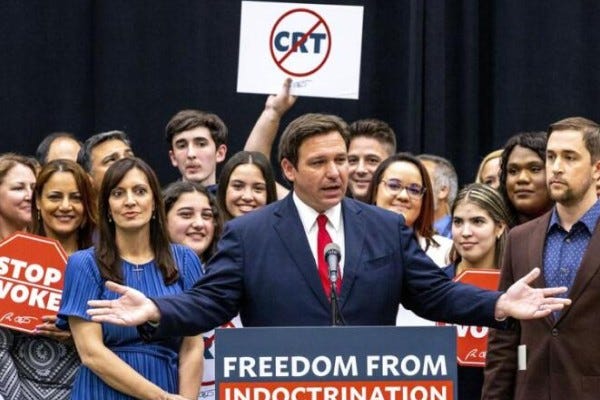

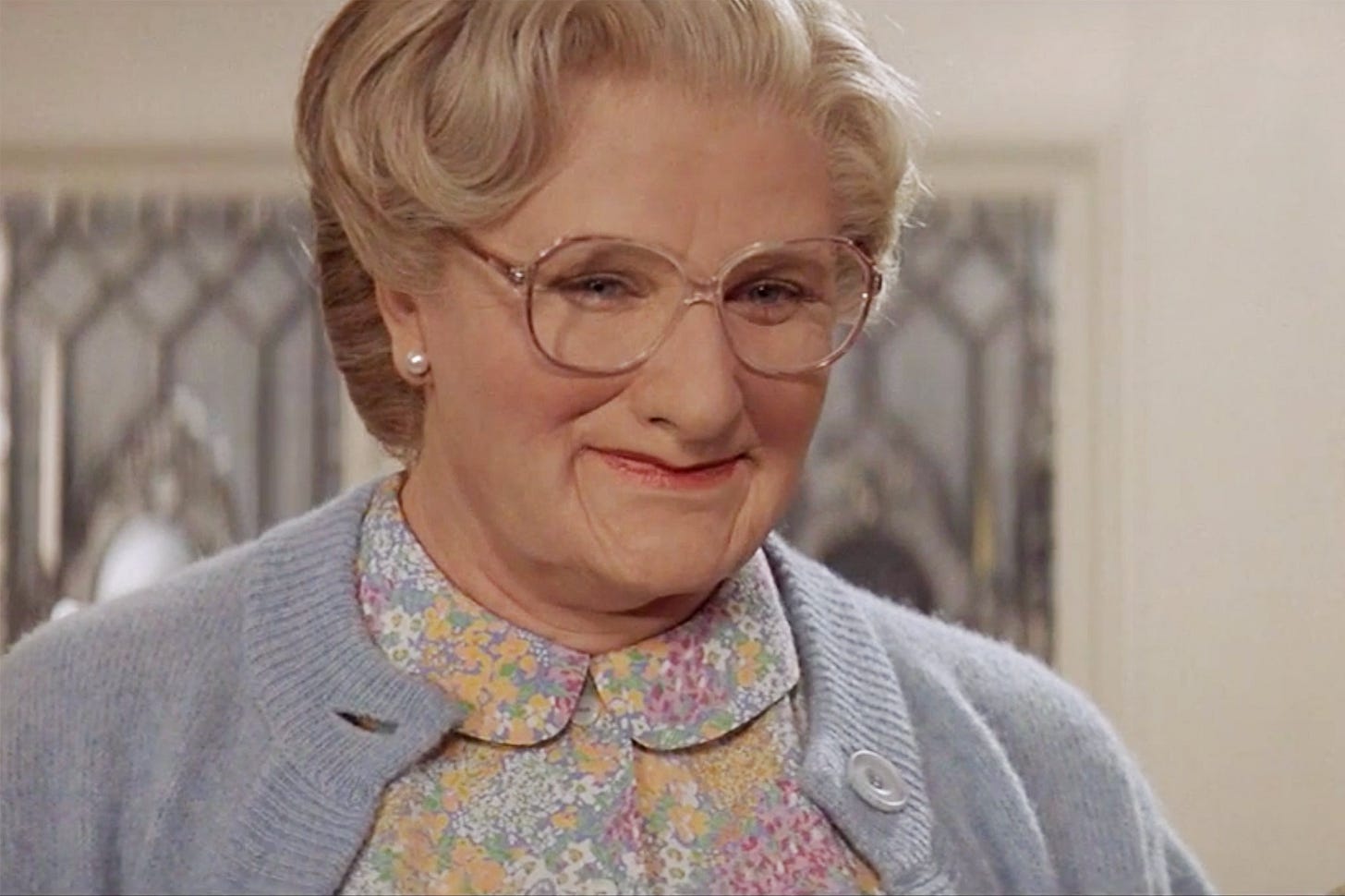



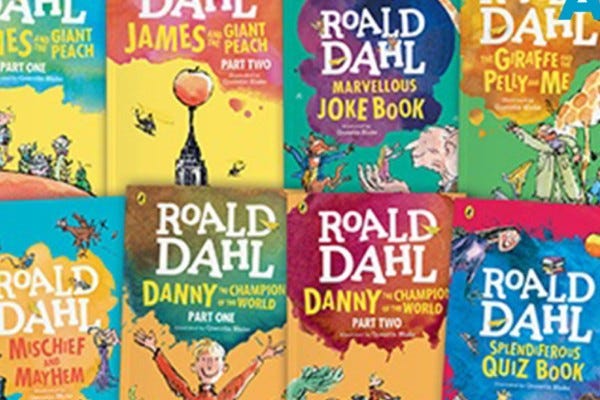


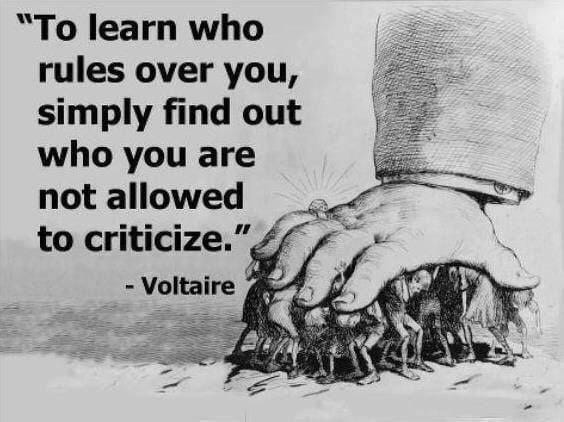


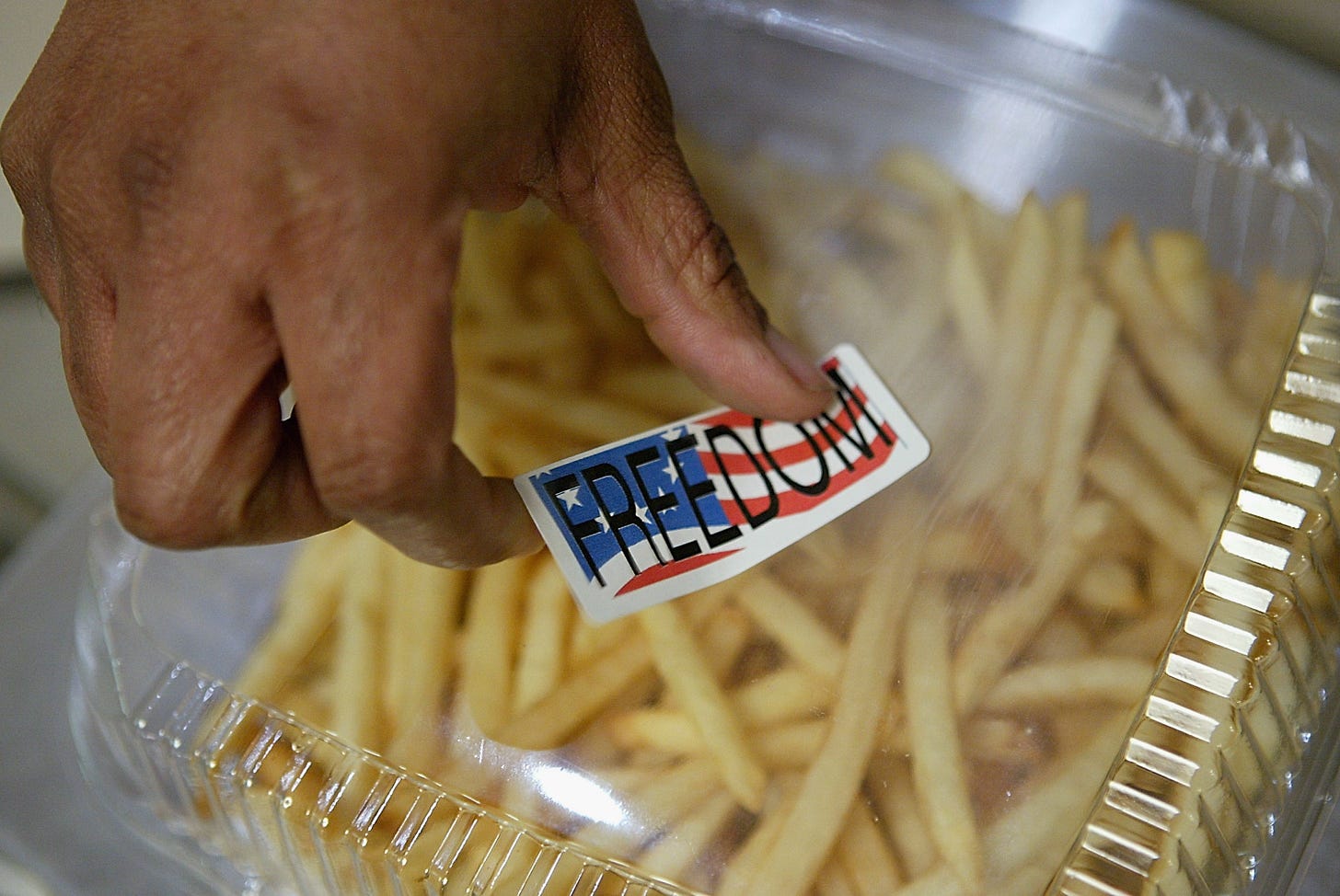

Love the graphics strewn thru the text. Thanks.
Why are you 'doing' my man Jackson Galaxy like that?